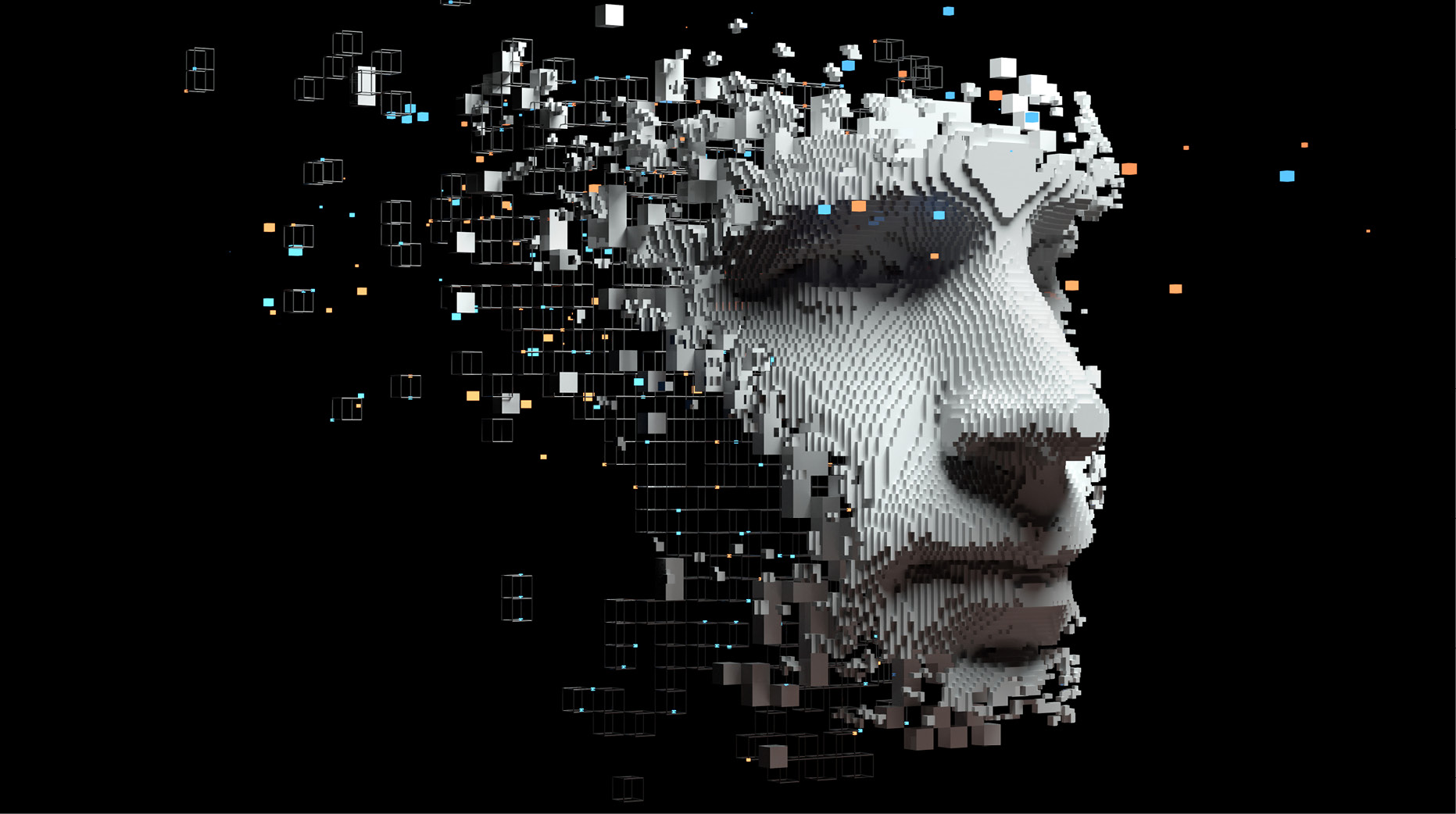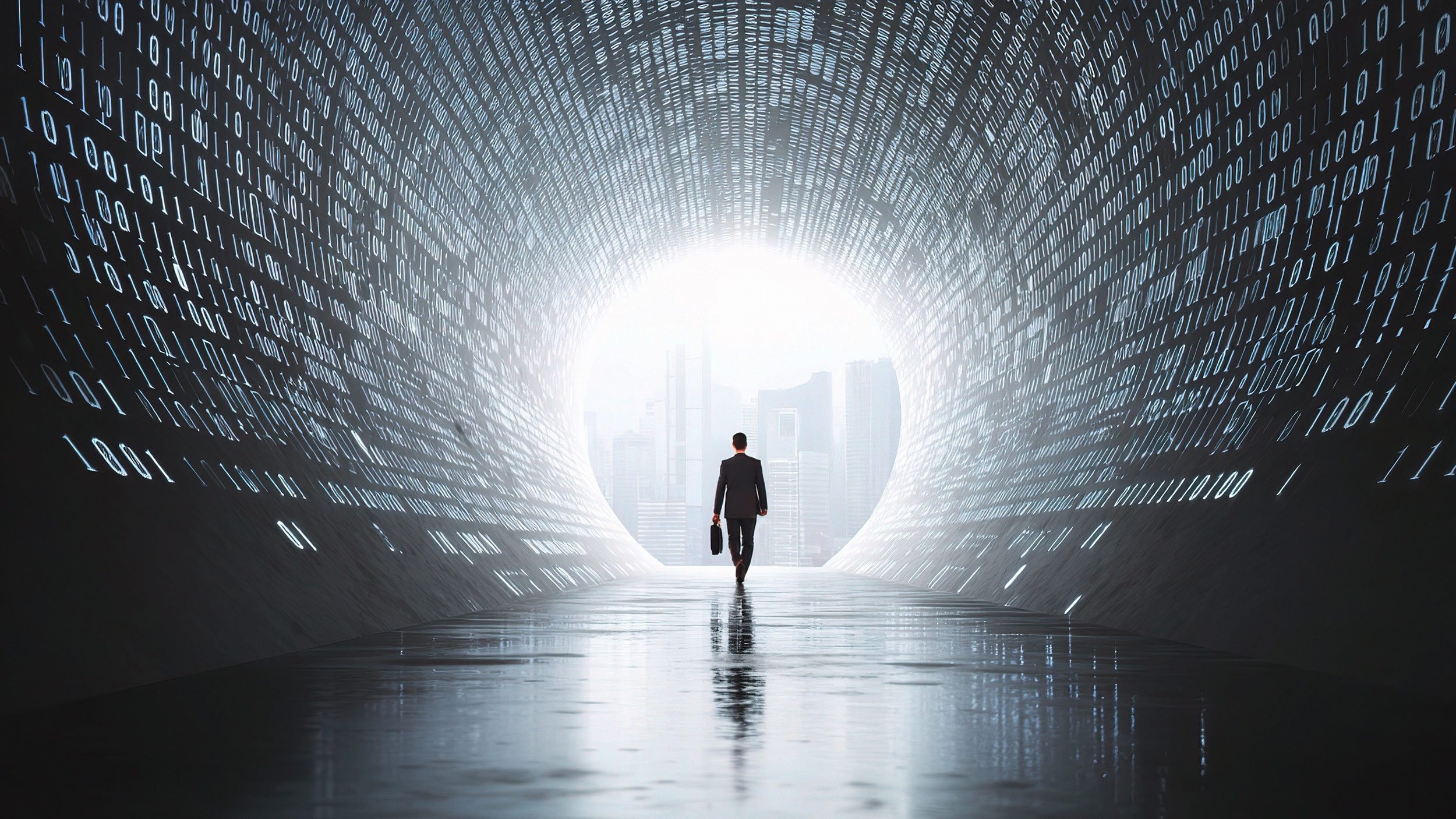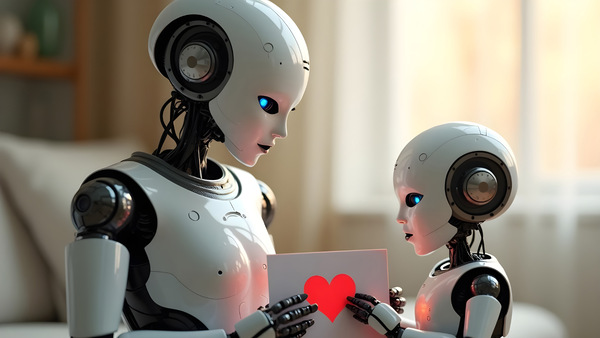The Trust Crisis: Why Outsourcing Trust To AI May Be Our Biggest Mistake
Listening to Yuval Noah Harari, the historian, philosopher and bestselling author known for exploring humanity’s future, speak about AI and trust made me pause and reflect. Harari highlights what he calls a paradox at the heart of our relationship with technology today:
Humans don’t fully trust each other, we know we’re flawed, biased and emotional. Yet many of us are ready to trust AI.
If we hesitate to trust people, how can we so easily trust the systems those people create? As Harari warns:
AI doesn’t transcend human bias. It encodes and amplifies it, often in ways we don’t even see.
And yet, here we are, rushing to hand over our trust to AI as if it can finally provide the certainty we’ve been longing for.
But what began as a paradox, in my view, is rapidly becoming a crisis of trust. Every day, I see people turning to AI not as a tool, but as a source of truth.
What I’m Noticing: When AI Feels Safer Than a Friend
This trust shift is everywhere. Someone recently shared with me:
When I pitch a business idea to a friend, they hesitate. They ask hard questions, point out risks. But when I ask AI, it immediately builds me a business plan. The AI sounds supportive, confident and encouraging.
And now, I see this playing out across social media:
People ask AI a question.
They post their response, unexamined as if it’s a definitive source of truth.
This pattern is spreading. fuelled by the role modelling of tech leaders. Despite knowing the limitations and risks of AI, they keep accelerating its development. They act as if AI can be trusted, so naturally, people follow.
This isn’t just happening, it’s being modelled, reinforced and amplified.
Why AI Feels So Tempting
The human brain craves certainty. Uncertainty triggers discomfort and stress regions like the anterior cingulate cortex and amygdala. Certainty lights up reward circuits.
So when a friend challenges us, we feel uneasy. When AI offers confident guidance, we feel relieved.
But this relief is dangerous when:
- We mistake confidence for wisdom.
- We bypass the hard work of reflection, dialogue and critical thinking.
- We start outsourcing not just tasks but judgment itself.
Why Humans Need Trust and Why Wisdom Cannot Be Lost
Trust isn’t optional. It’s essential for human survival.
From our earliest days, we thrived because we trusted, not blindly, but wisely. Trust allowed us to cooperate, form alliances, raise children and build societies. Those who couldn’t trust, or couldn’t be trusted, risked isolation.
Human wisdom emerged from this dance of trust, doubt and discernment. It’s what allowed us to navigate risk, forgive, adapt and evolve.
That wisdom, messy, hard-won and irreplaceable, must not be lost now.
AI may offer speed and confidence, but only humans bring moral reasoning, empathy and context.
The Illusion of AI as a New Source of Trust
We’re tempted to believe AI solves the trust problem. But as Harari reminds us:
Super-intelligent AI is, at its core, an alien agent, unpredictable and ultimately untrustworthy.
AI doesn’t eliminate the need for trust. It makes the need for human wisdom greater than ever.
What’s at Stake
- We reduce relationships to transactions judged by algorithms.
- We risk losing nuance, forgiveness and second chances, the very fabric of meaningful human trust.
- We weaken the faculties, empathy, reflection, and responsibility that define human wisdom.
How We Can Do Better
To navigate this trust crisis, I like to think in terms of something that looks like a triangle. I designed this quick triangle to remind us that no single element is enough on its own; true wisdom comes from holding all three in balance.
I call it ‘The Trust Triangle’, a simple visual that reminds us what’s needed for balanced, thoughtful decision-making:
- Human Wisdom:
Our moral reasoning, empathy and context - AI Support:
Technology as a tool, not a master - Critical Reflection:
The ongoing practice of questioning and discernment

Final Thoughts
If we want to navigate this new landscape with integrity and clarity, we must stay conscious of how we relate to AI. The choices we make today will shape not only our technologies but also the kind of leaders, communities and societies we become.
Here are guiding principles I believe can help us protect what matters most:
- Let AI support, not replace, human judgment.
- Remain accountable for decisions made with AI’s input.
- Embrace uncertainty, that’s where human wisdom grows.
- Choose relationships that challenge and stretch us, not just voices (or systems) that comfort us.
AI can help us process complexity. But it can’t make us wise. Human wisdom cannot and must not be lost, because it is wisdom, not certainty, that will guide us through the challenges ahead.
Trust is still ours to build. In this age of artificial agents, we need it more than ever.
Leading Wisely in the Age of AI
If the ideas in this article speak to you, and you’re exploring how to lead with more empathy, reflection and wisdom in a rapidly changing world, the Brain-Friendly Leadership Certification may offer a helpful next step.
It’s a space to deepen the human capacities like trust-building, discernment and relational awareness, that remain essential, especially as we integrate AI into our work and lives.
You can learn more about the program here👇
Sources:
- Fukuyama, F. (1995). Trust: The social virtues and the creation of prosperity. Free Press.
- Harari, Y. N. (2018). 21 lessons for the 21st century. Spiegel & Grau.
- Hirsh, J. B., Mar, R. A., & Peterson, J. B. (2012). Psychological entropy: A framework for understanding uncertainty-related anxiety. Psychological Review
- Hsu, M., Bhatt, M., Adolphs, R., Tranel, D., & Camerer, C. F. (2005). Neural systems respond to degrees of uncertainty in human decision-making.
- i4 Neuroleader (353)
- Leadership & Culture (337)
- Brain Health & Wellbeing (206)
- Innovation (97)
- Performance (85)
- Our News (79)
- Collaboration (68)
- Agility (53)
- Practitioner Stories (44)
- In The Press (36)
- Make Me A Leader (33)
- Balance (31)
- Integration (30)
- Imagination (29)
- Awareness (23)
- Brain-Friendly Channel (22)
- Brain-Friendly Leadership (22)
- Communication (22)
- Curiosity (21)
- Inspiration (19)
- Intuition (19)
- Attitude (17)
- Courage (16)
- Adaptability (14)
- Case Studies (14)
- Drive (14)
- Generosity (13)
- Ethics (9)
- Mental Readiness (9)
- Influence (8)
- Retreat (8)
- Brain-Friendly Leadership (1)
- Oracle Cards (1)
- 1 February 2026 (1)
- 1 November 2025 (2)
- 1 September 2025 (3)
- 1 August 2025 (5)
- 1 July 2025 (5)
- 1 June 2025 (2)
- 1 April 2025 (1)
- 1 March 2025 (8)
- 1 February 2025 (3)
- 1 September 2024 (4)
- 1 July 2024 (2)
- 1 June 2024 (6)
- 1 May 2024 (2)
- 1 April 2024 (3)
- 1 March 2024 (1)
- 1 November 2023 (1)
- 1 August 2023 (1)
- 1 July 2023 (2)
- 1 June 2023 (2)
- 1 May 2023 (4)
- 1 April 2023 (2)
- 1 March 2023 (7)
- 1 February 2023 (4)
- 1 January 2023 (1)
- 1 September 2022 (1)
- 1 May 2022 (3)
- 1 April 2022 (1)
- 1 March 2022 (5)
- 1 February 2022 (4)
- 1 January 2022 (4)
- 1 December 2021 (2)
- 1 November 2021 (4)
- 1 October 2021 (3)
- 1 September 2021 (6)
- 1 August 2021 (1)
- 1 April 2021 (1)
- 1 December 2020 (2)
- 1 November 2020 (1)
- 1 September 2020 (1)
- 1 August 2020 (1)
- 1 July 2020 (3)
- 1 June 2020 (4)
- 1 May 2020 (3)
- 1 April 2020 (4)
- 1 March 2020 (6)
- 1 February 2020 (4)
- 1 January 2020 (2)
- 1 December 2019 (3)
- 1 November 2019 (3)
- 1 October 2019 (5)
- 1 September 2019 (4)
- 1 August 2019 (4)
- 1 July 2019 (4)
- 1 June 2019 (5)
- 1 May 2019 (9)
- 1 April 2019 (9)
- 1 March 2019 (8)
- 1 February 2019 (7)
- 1 January 2019 (8)
- 1 December 2018 (5)
- 1 November 2018 (10)
- 1 October 2018 (16)
- 1 September 2018 (9)
- 1 August 2018 (10)
- 1 July 2018 (9)
- 1 June 2018 (8)
- 1 May 2018 (9)
- 1 April 2018 (9)
- 1 March 2018 (9)
- 1 February 2018 (8)
- 1 January 2018 (8)
- 1 December 2017 (6)
- 1 November 2017 (9)
- 1 October 2017 (9)
- 1 September 2017 (8)
- 1 August 2017 (10)
- 1 July 2017 (8)
- 1 June 2017 (8)
- 1 May 2017 (9)
- 1 April 2017 (8)
- 1 March 2017 (6)
- 1 January 2017 (3)
- 1 December 2016 (4)
- 1 November 2016 (5)
- 1 October 2016 (4)
- 1 September 2016 (2)
- 1 August 2016 (4)
- 1 July 2016 (4)
- 1 June 2016 (2)
- 1 May 2016 (3)
- 1 April 2016 (3)
- 1 March 2016 (7)
- 1 February 2016 (2)
- 1 January 2016 (5)
- 1 December 2015 (2)
- 1 November 2015 (2)
- 1 October 2015 (4)
- 1 September 2015 (2)
- 1 August 2015 (2)
- 1 July 2015 (1)
- 1 June 2015 (3)
- 1 May 2015 (4)
- 1 April 2015 (5)
- 1 March 2015 (3)
- 1 February 2015 (3)
- 1 January 2015 (3)
- 1 December 2014 (3)
- 1 November 2014 (3)
- 1 October 2014 (3)
- 1 September 2014 (5)
- 1 August 2014 (4)
- 1 July 2014 (5)
- 1 June 2014 (3)
- 1 May 2014 (1)
- 1 March 2014 (1)
- 1 December 2013 (2)
- 1 November 2013 (1)
- 1 July 2013 (1)
- 1 June 2013 (1)
- 1 May 2013 (3)
- 1 April 2013 (1)
- 1 March 2013 (2)
- 1 February 2013 (1)
- 1 January 2013 (2)
- 1 November 2012 (1)
- 1 October 2012 (1)
- 1 September 2012 (1)
- 1 August 2012 (2)
- 1 July 2012 (1)
- 1 June 2012 (1)
- 1 May 2012 (2)
- 1 April 2012 (1)
- 1 February 2012 (1)
- 1 January 2012 (1)
- 1 November 2011 (1)
- 1 October 2011 (3)
- 1 September 2011 (2)
- 1 July 2011 (1)
- 1 June 2011 (1)
- 1 May 2011 (1)
- 1 April 2011 (1)
- 1 March 2011 (1)
- 1 February 2011 (2)
- 1 January 2011 (4)
- 1 December 2010 (4)
- 1 November 2010 (3)
- 1 October 2010 (5)
- 1 September 2010 (4)
- 1 August 2010 (4)
- 1 July 2010 (3)
- 1 June 2010 (4)
- 1 May 2010 (7)
- 1 April 2010 (5)
Subscribe by email
You May Also Like
These Related Stories

A Brain-Friendly Brain in a World of AI

The Cost Of Control In A World That Wants Freedom




No Comments Yet
Let us know what you think